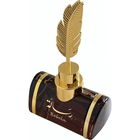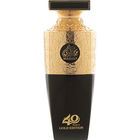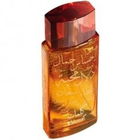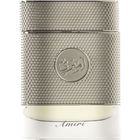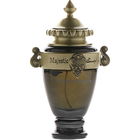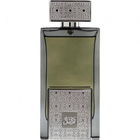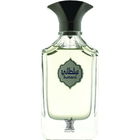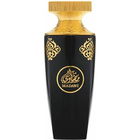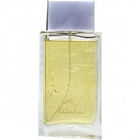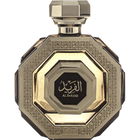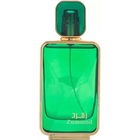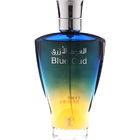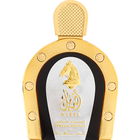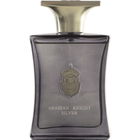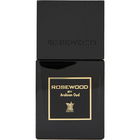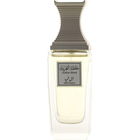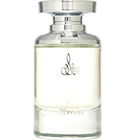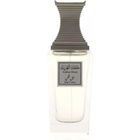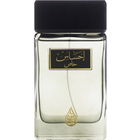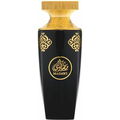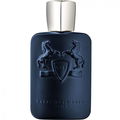In the Orient, by the Gulf, and in the Far East, they have been something like the reference standard of perfumery art for centuries, the "basic model," if you will. Everyone in the Western world who deals with the topic of fragrances knows them; they have even solidly arrived in the mainstream and now exist like sand on the beach. Every Western fragrance house has at least one in at least one collection, often many in many collections.
We are, of course, talking about the classic trifecta:
Rose, Oud, and (sometimes forgotten) Musk.
In particular, the use of Oud in its natural or synthetic form has experienced an absolute boom in Europe and the USA in recent years - and the combination "Rose-Oud" has correspondingly followed suit. I am often only partially convinced by the implementation.
I have searched for a long time for a perfume that interprets the theme in a way that excites me, captivates me, and perfectly embodies the mystical in Rose-Oud-Musk. I have tried many perfumes, finding many scents that I really like - but the perfect Rose-Oud fragrance was long missing. What was the reason for that? Here is my personal attempt at an explanation, without claiming objective accuracy:
1. Too much of a good thing: Most of the Western "Rose-Oud" representatives are anything but puristic. Overloaded scent pyramids, often using cheap or synthetic Oud, turn "niche fragrances" into rather undefined, generically boring representatives of this genre, following the motto that too many cooks spoil the broth. What wants to be particularly special loses its identity in chaos. So to speak, the "Berlin Kreuzberg"-ification of the Rose-Oud genre. These representatives are rarely bad, but they also rarely blow you away. Somehow there's a lot going on, but somehow "something is missing." Rarely is the special really special. There are extremely convincing exceptions like "Nefs | Nishane," but that still has little to do with classic Rose-Oud. I miss purism/minimalism.
2. The missing animalic/intensity: In a combination of Musk and Oud, one would actually expect animalic notes and intensity, a certain "skankiness," which must be well balanced to remain wearable. The latter is particularly important for sales to Western and inexperienced noses, which are somewhat more sensitive here. Fragrances from Oriental/Arabian fragrance houses traditionally do this very well. However, to avoid "shelf warmers," Western fragrance houses, in my view, often take the path of least resistance: the balancing act of animalic notes is too delicate, too dangerous, too difficult, so it is simply banished from the scent profile, resulting in fragrances that are (not) stinkingly boring for someone looking for true Rose-Oud. While fragrances like
Oud Republic show that even the completely domesticated, tame version of the trifecta can become a great perfume, too often the lack of animalic notes produces weak rose waters that one would rather use as a baking ingredient or in a hand soap than apply to the body.
3. Too much animalic or lack of balance: Animalic notes in fragrances are a matter of taste, and tastes vary. Perfumes from the Arab cultural sphere naturally also cater to the tastes of potential buyers, so it is not uncommon for a Western nose to find one or another Rose-Oud from the Orient barely bearable due to its animalic "muff." From my perspective, however, the term "cow stable" Oud is all too often pulled out of the suitcase to pigeonhole fragrances that do not convince - polarizing statements attract more attention on the internet. However, not every animalic note is the same as "cow stable," and not every cow stable is unbearably intense and unwearable. The latter seems to be something that Western fragrance houses sometimes forget when yet another Rose-Oud is launched that seems to aim to stink as intensely and unwearably as possible, so to speak, deliberately shooting over the target to hit a certain "edginess." Personally (at the risk of being crucified), I count
The Night in this category. Of course, "too much" has its fans, as this is all a matter of taste, and that's a good thing. However, as someone who wants to not only collect perfumes but also wear them in everyday life or on special occasions, I want to smell reasonably bearable for those around me. Of course, everyone should be able to express themselves individually, but the truth is that sometimes you have to be around people, and most people cannot consciously "escape" the scent. Even in the category of "much" animalic, there are representatives that excellently underpin the Rose-Oud theme with sufficient Oriental animalic notes and spice in a wearable variant, like "Alexandria Imperiale | Xerjoff."
So what was sought was the trifecta Rose-Oud-Musk that simultaneously embodies the magical three attributes of purism, animalic, and balance.
When I first got a whiff of
Royal Oud in a sample, I could hardly believe what I was smelling.
The overture, just a few minutes: The fragrance opens with a bang, a loud explosion of Oud that briefly catches attention with a hint of sharp animalic notes, igniting the thought "oh no, here it comes..." but within seconds makes way for an extremely dark yet almost fruity rose that one can hardly believe can be processed in a perfume.
The opera, first act, 1-2 hours: Then you sit there, completely confused by the animalic but immediately fading battle cry that had just greeted you, but the rose, this incredibly juicy rose that never appears dry, takes you by the hand and invites you to dance with closed eyes through a beautifully fragrant rose garden. The Oud watches at this point and rarely intervenes.
Second act, a few hours: The dance partner changes, the rose has not yet taken a seat in the audience but allows the slightly animalic, powdery musk to take the lead. I have heard that (synthetic) musk can be boring as an independent scent note and is only used for "depth" - here is the counter-evidence. Yes, you also have to like the slightly feminine, powdery musk often found in pure women's perfumes. However, it is implemented so beautifully here and embedded in the overall theme that it remains completely wearable for men. The Oud becomes louder, the animalic notes occasionally peek around the corner, but remain on the threshold of the perceivable, making them so mysterious and seductive.
The finale: The Oud loses patience and takes over. Until it is no longer perceptible (10 hours+),
Royal Oud remains a slightly animalic, powdery-rosy Oud fragrance of the elegant woody kind.
It is important to know that this is not an artistic masterpiece but is absolutely wearable in everyday life, pleasing without being boring or "bland." Perfect balance.
Thus, the search has come to an end. The king is crowned. Long live the king.








 Top Notes
Top Notes  Rose
Rose Heart Notes
Heart Notes  Musk
Musk Base Notes
Base Notes  Cambodian oud
Cambodian oud




 Finerthings8
Finerthings8 papajinzo
papajinzo Tvieso
Tvieso Ledersessel
Ledersessel Sjoe8000
Sjoe8000 EauDeParföng
EauDeParföng Kerimksy
Kerimksy Tomkleins
Tomkleins KingY98
KingY98 TomK5431
TomK5431